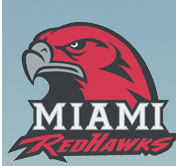The Cradle of Coaches, or Celebrating your Ex-employees
Note: It's 'HR and Sports' this Friday on the HR Happy Hour show, and in that spirit, I figured I'd try some posts with some kind of sports angle. Apologies in advance, Kris Dunn over at the HR Capitalist does these type of posts way better than anyone else, in fact you should probably stop reading this and click over there right now.
Still here? Ok here goes:
----------------------------------------------------------------------------------------------------------------------
In American college athletics it is not uncommon for coaches to have some success at smaller programs at lesser-known schools, then move out and up to higher paying, more prestigious jobs at so-called 'major' universities, like Ohio State, Notre Dame, or Florida. It does seem that almost every year one of these highly lucrative positions is filled in this way.
One of these smaller programs is the Miami University of Ohio. Miami of Ohio is known as the 'Crad le of Coaches', based on the numerous legendary coaches that worked there, and then went on to have remarkable success at larger, more well-known universities as well as in professional football. Just some of the coaches that have Miami roots are Woody Hayes, Bo Schembechler, Ara Parseghian, and Jim Tressel.
le of Coaches', based on the numerous legendary coaches that worked there, and then went on to have remarkable success at larger, more well-known universities as well as in professional football. Just some of the coaches that have Miami roots are Woody Hayes, Bo Schembechler, Ara Parseghian, and Jim Tressel.
 Ara Parseghian - Time Magazine - Nov. 20, 1964The interesting thing is that Miami is not the only smaller program to have had this experience, but by embracing it, and celebrating the achievements of former coaches once they have left Miami, they have created a kind of sustainable competitive advantage for talent compared to their most likely competitors for coaching talent.
Ara Parseghian - Time Magazine - Nov. 20, 1964The interesting thing is that Miami is not the only smaller program to have had this experience, but by embracing it, and celebrating the achievements of former coaches once they have left Miami, they have created a kind of sustainable competitive advantage for talent compared to their most likely competitors for coaching talent.
Any candidate for an opening at Miami would absolutely know of this rich history of successful coaches moving on from Miami to the highest echelon of the profession. And for a highly competitive field like collegiate coaching this is a huge selling point. Come and coach here at Miami, and we can help you on your path to becoming the next National Coach of the Year at whatever 'big' school you go to next. They take advantage of this legacy by fully embracing it, in fact they are planning to erect statues of many of the legends that built the 'Cradle of Coaches' history.
How many 'regular' organizations do you know that celebrate the achievements of ex-employees in such an explicit manner? Think of organizations that typically recruit new graduates or early career professionals. A compelling factor for the best talent among them might very well be, 'What can I do next with the experience I gain here?' For smaller companies,or ones in the non-profit or educational sector that can't usually compete evenly on salary and benefits, this may be one source of advantage that can be exploited.
Instead of limiting your pitch to the potential career paths within your organization, what about highlighting some of the success stories of people who left and then went on to achieve success in other places, or as entrepreneurs? Instead of just having current employee testimonials on your corporate job site, why not try and include interviews with some of your most famous alumni who would be willing to talk about how their experience with your organization set them up for long-term professional success?
Who is the most successful ex-employee from your organization right now?
Are you using that story to your best advantage?

 Steve
Steve
